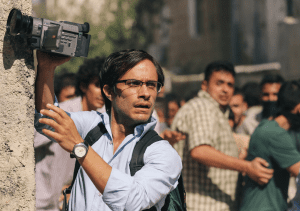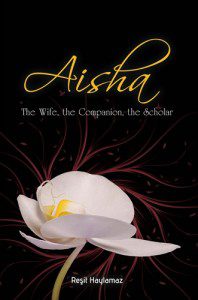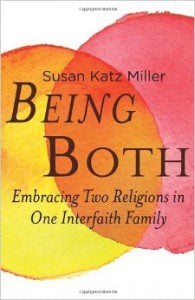 |
|
Religious rocker rejects radicalism (Photo: Risya RS)
|
A rock star would be the last person one might expect to address a major defense policy conference. Yet the National Homeland Defense Foundation Symposium, held on October 3 in Colorado Springs, welcomed such a guest: thirty-four-year-old Ahmad Dhani.
Dhani is nothing short of a superstar in his native Indonesia, where he performs to sold-out crowds with his band Dewa 19, and where his music has defined a generation of young Indonesians. Frequently compared to U2 frontman Bono, Dhani and his band’s music took a political turn two years ago. Since dictator Suharto was ousted from power in 1998, the country has been engaged in a high-stakes “culture war”: Islamic political movements have been able to operate more freely, and extremist groups like Hizb ut-Tahrir and the Islamic Defenders Front have been pushing for the adoption of sharia law. Indonesia has been plagued by major terror attacks in Jakarta and Bali, and by religious and communal violence, such as clashes between Muslims and Christians in early 1999. Dhani and his group, like many urbanites, were alarmed by these developments. They decided to use their music to respond to the hateful ideology that has been seducing so many Indonesian youths.
One of the largest groups responsible for the escalation of violence in 1999 was Laskar Jihad (“Warriors of Jihad”), a violent militia that was led by Jafar Umar Thalib, a veteran of the Afghan jihad who claims to have met Osama bin Laden. When a fight between a Christian bus driver and a Muslim passenger who refused to pay his fare escalated into communal violence on the Maluku Islands in January 1999, Thalib’s militia shipped thousands of fighters into the region by boat to “wage jihad.” The conflict lasted three years; an estimated 10,000 people perished on the island of Ambon alone, and around half a million Indonesians were driven from their homes. For its central role in the crisis, Laskar Jihad became, according to former Indonesian president Abdurrahman Wahid and American philanthropist C. Holland Taylor, “a symbol and a byword for the suffering inflicted upon that region.” So it is fitting that, in turning toward political involvement, Dhani referenced the radical group in the title of Dewa’s November 2004 album. It was called Laskar Cinta, Warriors of Love.
The Laskar Cinta album was designed to provide Indonesian youth with a choice between joining the army of jihad and joining Dhani’s army of love. It sold hundreds of thousands of copies and became fodder for the Islamic Defenders Front, the most vocal radical group in Indonesia today, which accused Dhani of being an apostate and a Zionist agent. These attacks seem to have backfired, however. Nick Grace, a Washington, DC-based Indonesian-language political commentator, said that the attacks on Dhani and a lawsuit that accused him of defaming Islam only served to make him more prominent. Dhani’s message was juxtaposed with that of the radical groups on entertainment and celebrity gossip television programs.
This year, Dhani followed his 2004 effort with a new album, Republik Cinta (“Republic of Love”). One of the new songs on the album is called Laskar Cinta. Although some listeners may be confused that the song bears the same name as Dewa’s previous album, Dhani told the Indonesian edition of Rolling Stone that this isn’t an uncommon practice. He proudly noted that his favorite band, Queen, also did this.
Laskar Cinta is an innovative song, designed as a “musical fatwa” against extremism. The lyrics reflect Dhani’s Sufi faith: they are inspired by the Qur’an and ahadith (the sayings attributed to Prophet Muhammad) with the intention of rebutting the hateful ideology that inspires Islamic terror. There is even an annotated version of the song online that makes the theological inspiration behind the verses explicit. And it has found an audience: Laskar Cinta became the #1 song in Indonesia shortly after its release, while its music video reached the top spot on MTV Asia’s popular Indonesian- and Malay-language Ampuh program.
Dhani is an unlikely to emerge as a major cultural figure trumpeting a peaceful vision of the Islamic faith. A Wall Street Journal profile on Dhani published in mid-August notes that his grandfather “participated in the Daru Islam Islamist guerilla movement, which counted among its members the terrorist group leader who plotted the Bali bombings a few years ago. Dhani’s father, Eddy, followed in his father’s footsteps, figuring prominently in an organization bent on preaching Wahhabism.”
In an interview conducted for this article, Dhani described his father as “an Islamic fundamentalist,” and said that this led him to send Dhani to a Wahhabi school as a young man “because he wanted his son to have a sound perspective.” Dhani attended this school for about six years. Despite a strict upbringing at home and in school, Dhani began playing music when he was about six years old. Many conservative schools of Islamic thought consider music to be haram, or prohibited by Islamic law, and Dhani told me that he was exposed to these teachings. He noted, though, that he was never told that it was a crime to play music, just haram.
Dhani felt destined to play music. His mother Joyce, a convert from Roman Catholicism to Islam, was a musician and exposed him to music from a young age. Dhani states that music is the one thing that has consistently given him joy: “Music is the only thing that makes me have fun. I don’t like to do anything besides music. I don’t like riding bicycles or motorcycles; I don’t like other things but music.” So Dhani joined his first band in 1987, when he was still a teenager.
Yet even as a musician – and even after becoming a superstar in Indonesia – Dhani describes himself as continuing to hold very intolerant views. He voted for a conservative Islamic political party when he became old enough to vote, and despised those who didn’t vote the same way. He in fact describes himself as “an embryonic radical Muslim” during this period.
When Dhani was in his mid-twenties, however, his outlook began to change. A major factor in his transformation was his exposure to Sufism. Although Sufism isn’t universally known for being peaceful, it is often described in the terms that Dhani has used for it: “Sufism is the inner, spiritual dimension of Islam that focuses not on what separates people from one another or God; but rather, on what unites us. Sufi Islam teaches Muslims to love and respect all of God’s creatures, and not to unnecessarily harm anyone.”
It was changing from a fundamentalist outlook to a Sufi outlook that made Dhani more tolerant of religious and cultural differences – and, ultimately, this changed outlook transformed him into a cultural warrior battling against hatred and extremism.
Dhani isn’t the only figure in Indonesia’s entertainment industry to take a stand against the country’s growing extremist sentiment. Another Indonesian to take a stand is film director Joko Anwar, who is currently working on a film called Dead Time, which aims to subtly criticize efforts to establish sharia law. Anwar also challenged some of Indonesia’s conservative mores as screenwriter for the 2003 comedy Arisan!, which swept the national and international film awards and has been spun off into Indonesia’s top-rated TV sitcom. Upon learning that the ban of on-screen kissing in Indonesia only applied to kisses between a man and woman, Anwar refashioned the script to center the movie around a likable gay protagonist. The resulting same-sex kissing scenes became a national sensation, with celebrities jokingly declaring they were gay as a political statement.
And dangdut music sensation Inul Daratista’s suggestive “grinding” style of dance has gotten her banned from several Muslim-dominated towns and condemned by the Indonesian Ulemas Council. She has been openly supportive of liberal Indonesian political parties.
But unlike Anwar and Daratista, Dhani’s message is explicitly religious. This is reflected not only in his music, but also in his public pronouncements. Asked at the defense policy conference what can be done to help bridge the gulf between Islam and the West, Dhani replied that people in the West need to respect Islam: not to respect radical Islam or the ideology of al Qaeda, but to respect the faith itself. Dhani said that it isn’t just a matter of voicing respect for Islam, but that Westerners should actually feel this respect in their hearts because that language of love and respect will ultimately be communicated back to the Muslim community.
Al-Husein Madhany, executive editor of Islamica Magazine, says that the religious element of Dhani’s message should not be ignored. “If mainstream Muslims do not engage in religious rhetoric,” he warns, “there’s no way to engage the youth. What we’ve seen is that those who are successful in engaging the youth and are making an argument with religious rhetoric – with the Qur’an, the ahadith, and sheikhs backing them up – are the ones winning the argument.”
Madhany says that the fact that Dhani is a recording artist is also significant. He states that the arts are important because they engage the local culture, and also engage identity on multiple levels. “When you have an artist doing that and he’s selling a million records, we need to take note of that and try to replicate it in other contexts, including in America,” Madhany says. “It’s the youth who are being attracted to extremism, and the way they’re being attracted to it is through religious rhetoric. We need to come up with a creative counter to that, and I think this is one good example.”
Dhani has been actively trying to engage the youth, and offer them a religious alternative to extremism. He has expressed his vision for change: “My hope is that in the future, Dewa’s fans – who are primarily young and not yet contaminated by extremist ideology and intolerance – will grow up to be more tolerant than the present generation and break the cycle of hatred that has begun to plague our society.”
Dhani’s vision clearly merits his inclusion at the defense policy conference in Colorado Springs. How to foster a more moderate Islam is one of the critical questions of the war on terror to which, at present, there are few compelling answers. At the end of the day, the rock musician from Indonesia may have had more wisdom to impart than most of the other speakers.
Daveed Gartenstein-Ross is a senior consultant for the Gerard Group International and author of the forthcoming book My Year Inside Radical Islam.











